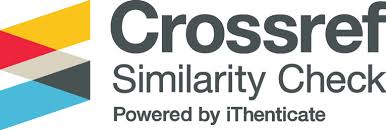Pengaruh Penerapan Teknologi Informasi, Persepsi Korupsi Pajak Dan Tarif Pajak Terhadap Kepatuhan Wajib Pajak Orang Pribadi Di Kantor Pelayanan Pajak Pratama Denpasar Timur
Abstract
Based on data from the Central Bureau of Statistics, the realization of state revenue from the tax sector in 2019 was IDR 1,955 trillion. Given the large portion of revenue from the tax sector to state revenue, special attention is needed in order to maintain compliance from the taxpayers themselves. Taxpayer decisions in the context of carrying out their obligations can be influenced by various factors, in this study the limiting factors used are the application of information technology, perceptions of tax corruption, and tax rates. The sample in this study were individual taxpayers registered at KPP East Denpasar, totaling 100 samples, which were determined by the probability sampling method with the simple random sampling technique. The type of data used is quantitative data sourced from primary data and secondary data. In this study the data analysis technique used was multiple linear regression analysis with the coefficient of determination test, F and T. The results showed that the application of information technology, perceptions of tax corruption and tax rates had a positive significant effect on individual taxpayer compliance at KPP East Denpasar.







